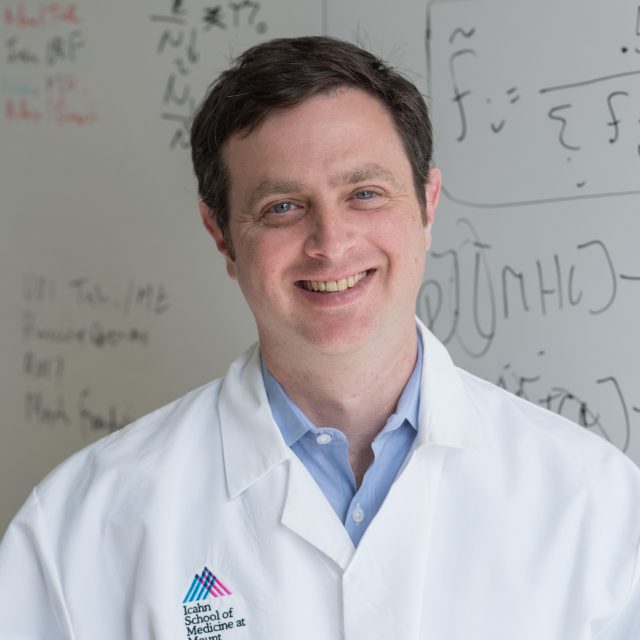
A major goal of cancer genomics research over the last two decades has been to map and understand where mutations carried by cancerous cells occur in the genome and how these mutations functionally drive tumor development. The most highly mutated gene in cancers is TP53, a transcription factor which tightly regulates genomic integrity and cell cycle progression. Notably, there are “hotspot” mutations that occur in some regions of the TP53 gene more than others, and although these mutations have been intensely studied, the reasons behind their high prevalence in cancer remain incompletely understood. Now, Benjamin Greenbaum, PhD, from Memorial Sloan Kettering Cancer Center has made a fundamental leap forward to address this question in a new paper published in Nature, as part of a project supported by The Pershing Square Sohn Prize-Mark Foundation Fellowship.
To understand the prevalence of hotspot mutations, Greenbaum’s group and collaborators used a mathematical model which drew upon concepts from statistical physics and machine learning to generate a “free fitness” function for TP53 mutations. This function defines a landscape that integrates large, diverse data sets to understand the advantage an individual mutation confers to a cancer cell. Intriguingly, they found there is an inherent fitness trade-off between immunogenicity and oncogenic potential for a given mutation. “The mutations found in cancerous cells occur in the presence of the immune system, which is constantly surveilling tissues to identify and destroy highly mutated or damaged cells,” explained Greenbaum. “Therefore, while mutations are necessary for cancer cell development, they can come at the cost of being recognized by the immune system as foreign and eliminated from the body.” The team found that hotspot mutations in TP53 provide optimal immune evasion possible while being constrained to simultaneously provide the most oncogenic potential. “The Mark Foundation’s fundamental commitment to multi-disciplinary cancer research was critical to the success of this study and allows teams like ours to bring new perspectives to critical problems.”
“These results have striking implications for our understanding of the evolution of cancer and for developing treatment strategies,” said Ryan Schoenfeld, PhD, Chief Executive Officer of The Mark Foundation for Cancer Research. Schoenfeld explained that the data suggest that hotspot mutations in other driver genes may have similar fitness trade-offs between promoting tumorigenic potential and the ability to evade the immune system. The results also suggest that certain mutations will be more amenable to precision immunotherapy than others. The trade-offs faced by tumor cells in their evolution have only just begun to be systemically studied. “We are excited that Dr. Greenbaum recently began a Mark Foundation ASPIRE Award to follow up on these questions,” said Schoenfeld. “Expanding the models his team has developed will allow us to leverage immunological vulnerabilities in cancer mutations for precision therapies.”



